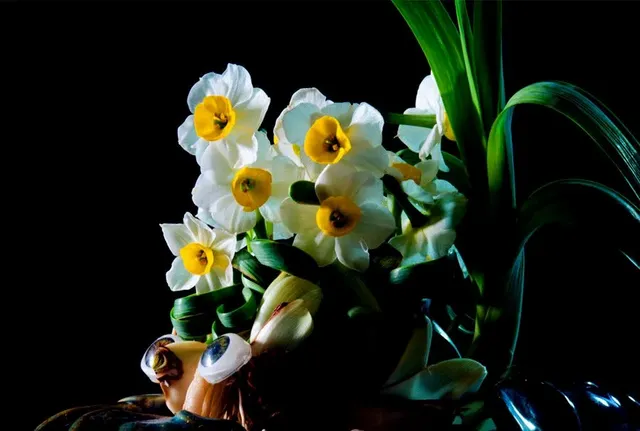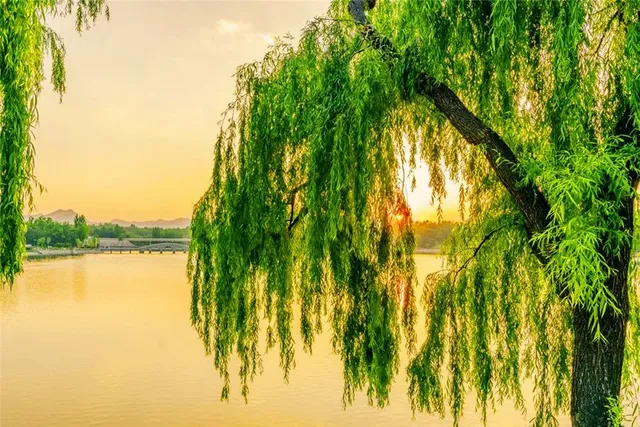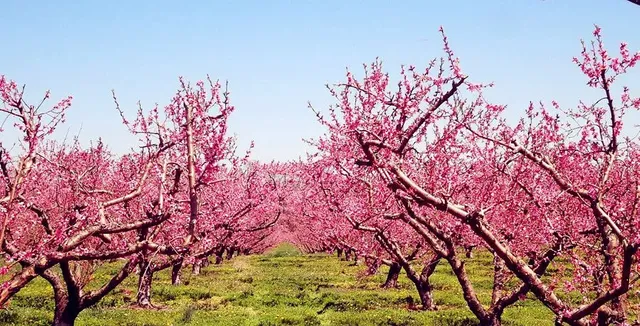
Plants, flowers, and trees are also closely related to people’s lives in the Chinese language; there are many interesting plants related Chinese words.
Plant Related Chinese Words
Plant Related Chinese Words - narcissus
Like the Animals related Chinese words, many Chinese words are about flowers, trees and other plants which are also closely related to people's life. For hundreds and thousands of years, plants have become an inspiration for many vivid language expressions that have been passed down from generation to generation. For example, Chinese people often associate “美女” (mei nv, a pretty girl) with “flower” and “君子” (jun zi, a gentleman) with “bamboo.” First, these associations may derive from the outward appearance and the inner nature of the plants. Second, poets and scholars in the past had, to some extent, endowed various characteristics to many plants in their works, which enhanced people’s perception of certain plants.

Willow 柳树
Plant Related Chinese Words - Willow
Expressions with “柳” (liu, willow) mean more connotatively than literally. For example:
柳暗花明
(liuan huaming, dark willows and blooming flowers—a beauteous scene; a new vista)
As described in The Book of Songs (《诗经》, shi jing), willow implies “departure, and wandering experiences.”
折柳赠别
(zheliu zeng bie, to see sb. off with a willow branch)
During the Han Dynasty, in “长安” (Chang’an), this expression was very popular. But why does “柳” mean "departure"? Probably it is because the character "柳" has the same pronunciation with "留" (liu, stay).
柳腰
(liu yao, willowy or slender waist)
In earlier writings in literature, the dangling willow branches in the wind often symbolize “soldiers’ homesickness.” But to some other writers, the dancing willow leaves in the wind usually reminded them of ladies’ slim figures, so came this expression.
柳眉 (liu mei)
As is known, willow leaves are long, thin and curved. Therefore, people coined this expression to describe “the arched eyebrows of a pretty girl.”
Also, the dancing willow twigs also remind people of ladies who "are at the mercy of others," the prostitution. Therefore, in expressions such as "寻花问柳" (xunhua wenliu, dally with prostitutes), "墙花路柳" (qianghua luliu, street girls), "柳" implies "prostitutes."
残花败柳 (can hua bai liu)
This expression “similarly means “ladies in the brothel who have for a long time been dallied with and have already lost their beauty.”
Peach 桃树

Plant Related Chinese Words - Peach
“桃” (tao, peach), for its color and fragrant smell, has been one of the earliest discovered plants of our ancestors. Like a willow, it usually makes people think of "delicate and charming girls."
粉面桃花
(fenmian taohua, the sweet, charming appearance of a girl”)
桃腮
(tao sai, meaning the “pink cheeks of a girl)
Peach blossom has always been known for its color and the sweet appearance, but in the wind, the blossoms soon fall off trees. And this often reminds people of the short youth time and the misfortune a pretty girl. Therefore, there came the expression:
桃花命
(taohua ming, meaning the “misfortune”)
桃花 (红颜) 薄命
(hong yan boming, a popular saying meaning the "tragic fate" of a pretty girl)
"桃" is culturally associated with women and sex in China. So there are the collocated sayings, “桃色新闻 (taose xinwen) and 桃色事件 (taose shijian),” which mean "sex scandal."
Another expression, 桃花运 (tao hua yun), is sometimes ironically said to young men. It often implies “a girl being involved with a sexual affair or a man who has sex with many girls.
In language, “桃” often goes together with “李” (li, plum). Like a peach tree, plum trees also bloom in spring and are known for their beautiful blossom. Therefore, “桃李” has become a collocated saying referring to “a girl’s appearance.” Similarly, “桃李人” (taoli ren) means “a woman of matchless beauty,” and “桃李精神” (taoli jingshen) refers to “the way a pretty girl carries with herself.
Both “桃” and “李” are known for their blossom and fruit. Gradually,
This content appears to be plagiarised from -
https://www.cchatty.com/Plant-Related-Chinese-Words-g-100084
If you have not already done so, you should head to the newcomers community and complete the newcomer achievement programme. Not only will you earn money through upvotes, you will learn about content etiquette;
You are currently in Stage 1 of our 4 Stage Process:
👉 Stage 1 - 1st Warning - Pointing offenders towards Achievement 3 and highlighting this process. All plagiarised posts currently pending rewards will be flagged and downvoted to $0 rewards.
Stage 2 - A Final Warning - Another request to stop and that plagiarism will not be tolerated. Downvotes amounting to 20% of total pending rewards according to steemworld.
Stage 3 - A stronger message - Downvotes amounting to 50% of pending rewards.
Stage 4 - The strongest message possible - Downvotes amounting to 100% of pending rewards.
Plagiarists will bypass stage 1 if translated from another language.
Downvoting a post can decrease pending rewards and make it less visible. Common reasons:
Submit
thankyou sir i did not know about plagiarism .I am new here .you guide me now i shall never copy anyone .thankyou
Downvoting a post can decrease pending rewards and make it less visible. Common reasons:
Submit
i hope you can listen to me iam new here and now i am working hard so i request you to keep me away from from warning and approve my profile and upvotes me this will encourage me to upgrade thankyou
Downvoting a post can decrease pending rewards and make it less visible. Common reasons:
Submit